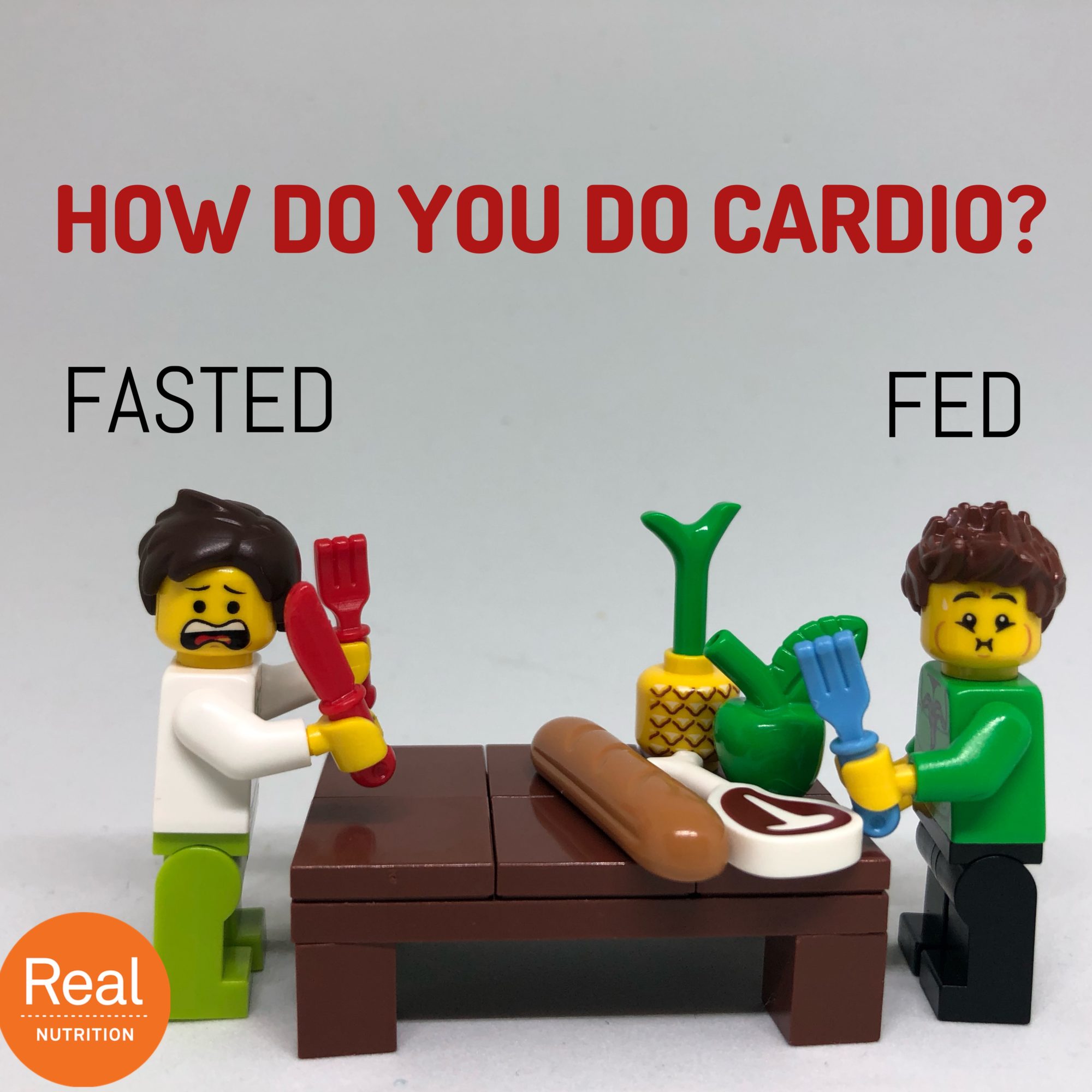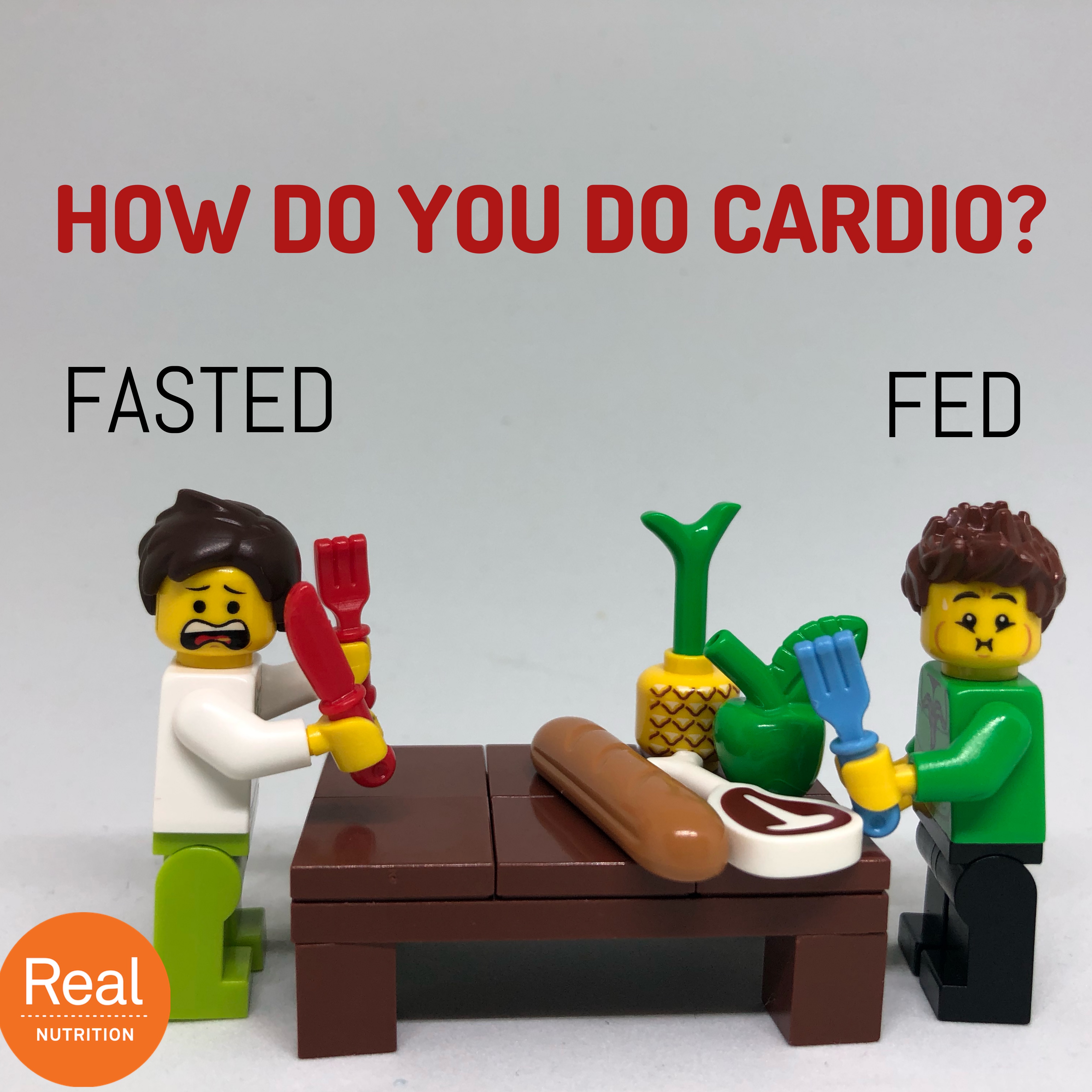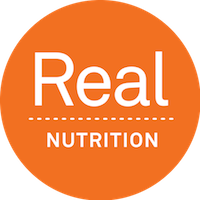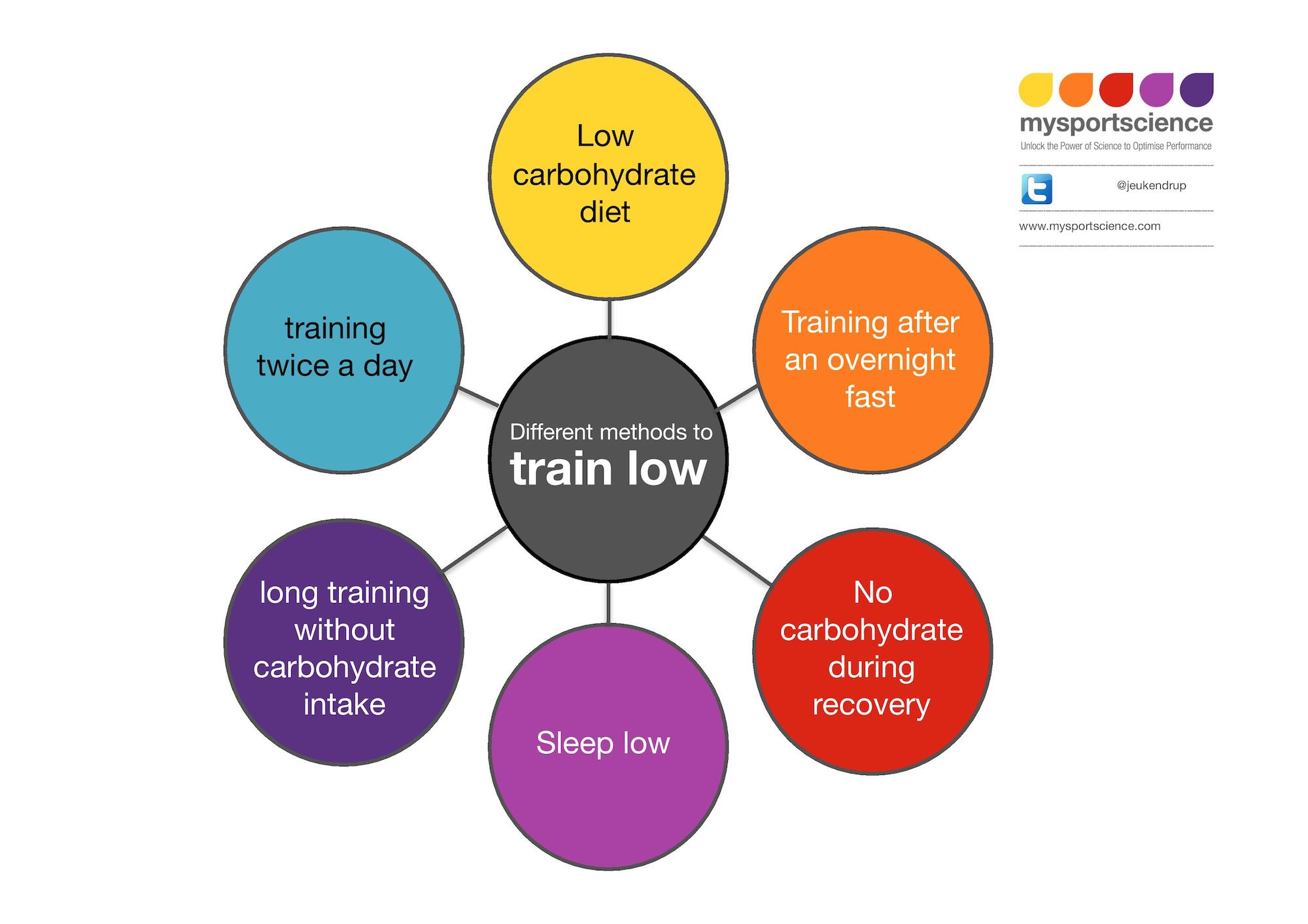
Does doing cardio “fasting” burn more fat?
You may have heard the buzz about working out in a “fasted” state. If you do cardio in the morning before eating, will it burn more fat? Will your belly magically melt away?

Here’s the scoop:
Training in a fasted state with (“training low”) can be done a number of ways:
- Training in the morning before eating
- A second workout in the evening without eating at least 3-4 hours beforehand
- Going on a long (more than 2 hours) training ride or run without taking in carbs during the training
- Not taking in carbs aftertraining (this means you don’t replenish used-up glycogen stores)
- Eating a general low-carb diet
But is training fasted right for you?
Some endurance athletes train “low” in order to train their body to use fat stores more efficiently while exercising. It’s true that you can train your body to oxidize (or “burn”) fat for fuel by training “low.” This can be beneficial for endurance or ultra-endurance athletes. If you are out on the race course for 6 hours or more, it might be handy to use some fat stored on your body as fuel, right?
But there are some problems with training low. One is that you may feel crappier. Athletes that don’t have enough carbs available (in the form of glycogen or additional carbs they eat while exercising) often can’t hit higher intensities. This means you may not be able to go as fast, as hard, or as long. If you have a HIIT workout or intervals planned, you need carbs. If you are in a race where accelerations are required, such as passing someone or sprinting toward the finish, you need carbs.
Training “low” increases the rate of perceived exertion. This means it feels harder to do the exercise than it would have without carbs.
Study after study shows that endurance athletes perform better with carbs.
In addition, people that train low often do it under the assumption that it will burn more fat, thus helping them lose weight. You will only lose weight if you are in a calorie deficit, regardless of how much fat or carbs you eat. Training in a fasted state in and of itself will not cause weight loss. Only a calorie deficit can do that!
So what’s right for you?
Working out fasted may work for you if your stomach and gut feel better than working out with some food. If you’re going for less than 60 minutes, usually people can work out in the morning without eating, and without compromising their training. However if you feel you are not making training gains like you’d expect, you can’t hit high intensities, or you feel weak, shaky, dizzy, irritable, or headachy, that’s a sign that you need to eat to fuel your workout. Learn more by watching our Endurance Fueling masterclass.
Check out our amazing nutrition resources, including on-demand courses, free downloads, and webinar replays.
- Nutrition for Climbers
- The Ultimate Guide to Useful Sports Supplements
- Ditch Diets and Become an Intuitive Eater
And be sure to follow us on Instagram!
Book an appointment with the dietitian
~This is general nutrition advice and is not to be taken as medical advice. Ask your doctor before undergoing any diet, exercise, or lifestyle change.


